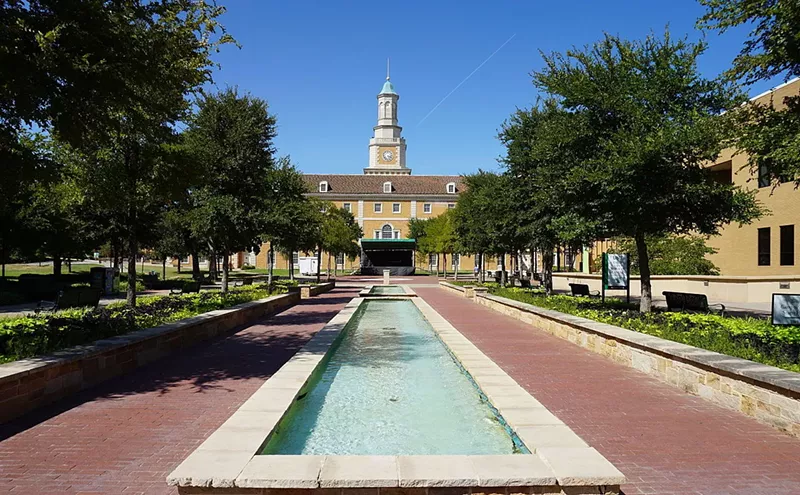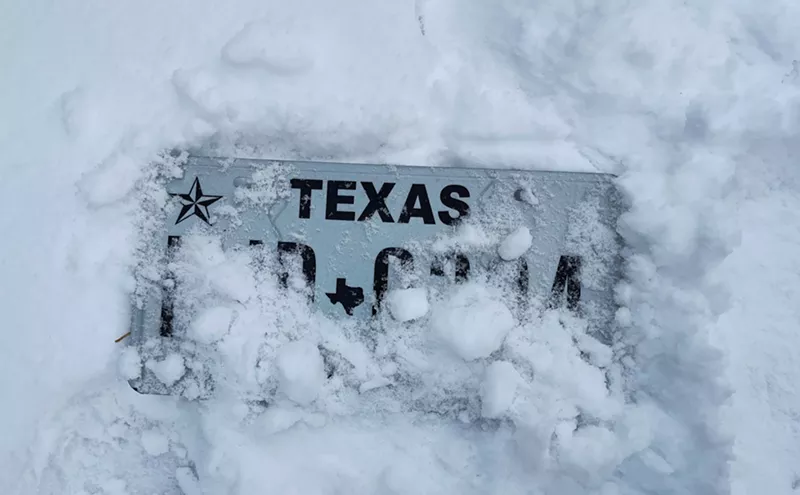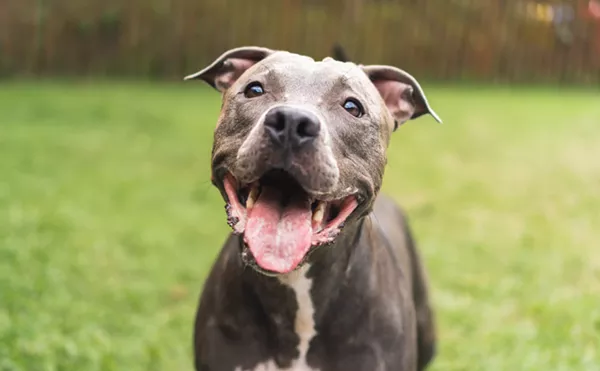It's not Groundhog Day, but it's close. Late Monday afternoon, Texas Attorney General Ken Paxton, still under felony indictment and still taking on all comers, announced that his office has new plans to curb what he frames as an epidemic of in-person and mail-in voter fraud in Texas.
In a letter to Texas state Sen. Bryan Hughes, the chairman of the Senate Select Committee on Election Integrity, Paxton says he wants permission from the Senate to partner with state and federal agencies in order to purge noncitizens from voter rolls, require Texas counties to notify the state when they remove someone from the voter rolls for not being citizens and partner with other states to make sure people aren't voting in multiple jurisdictions in a given year. Paxton also wants stiffer penalties for lying on voter registration applications and a lengthening of the statute of limitations on the same crime.
"Media reports of illegal voting and the widespread practice of seeding and harvesting mail ballots, together with recent prosecutions and investigations conducted by this office, have confirmed that the threat to election integrity in Texas is real, and the need to provide intentional safeguards is increasing," Paxton said.
In 2017, Paxton's office prosecuted a Tarrant County green card holder for illegally voting five times from 2004-14. Rosa Maria Ortega, who was sentenced to eight years in prison, testified at her trial that she believed she was a citizen.
"All my life since I worked. I always on my knowledge thought I was a U.S. citizen because I never knew the difference of U.S. citizen and U.S. resident. And the point is if I knew, everything would've been the correct way," she said.
Paxton's office also assisted the Dallas County District Attorney's Office with its investigation into alleged mail-in ballot fraud in last year's Dallas City Council election. In that case, one person, Miguel Hernandez, was charged with illegal voting after allegedly filling out a mail-in ballot application for an elderly West Dallas resident. Although more than 600 ballots were sequestered because of fraud concerns, only three ballots ended up being submitted and not counted in West Dallas' District 6, the center of the investigation.
Even with those limited results, Paxton believes that illegal voting is a real problem in the state. He cites a survey done by his office that showed 165 noncitizens had been removed from voter rolls in four unidentified counties over the last two years. Those individuals, Paxton said, had cast more than 100 votes in Texas elections before having their names removed from the rolls when they identified themselves as noncitizens when selected for jury duty.
"The OAG is unable to determine the scope of non-citizen voting across Texas from the non-citizen jury duty numbers alone," Paxton says, "but it appears to be a significant problem nonetheless."
Let's do a little math for the attorney general: If 100 illegal ballots were cast in four counties over a two-year period, that means that each county in the sample averaged 12.5 illegal ballots per year. If the same held true across all 254 Texas counties, and that's a big if, that means that 3,175 illegal votes would be cast in Texas per year. If all those votes were concentrated in one statewide race, even one with horrific turnout, like Texas' off-year constitutional amendment election that saw about 880,000 voters show up in 2017, they would amount to less than one-third of 1 percent of the vote.
In addition to purging the voter rolls, Paxton has also asked the Legislature to consider requiring that any person requesting an absentee ballot have photo identification on file with the state, a provision lifted from Wisconsin's voter ID law, the most restrictive in the nation. He also wants seniors targeted by mail-in ballot harvesters to be able to sue the people trying to manipulate their ballots, creating a "low-cost no-governmental enforcement alternative for costly vote harvesting investigations."

Audio By Carbonatix
[
{
"name": "GPT - Billboard - Slot Inline - Content - Labeled - No Desktop",
"component": "21721571",
"insertPoint": "2",
"requiredCountToDisplay": "2"
},{
"name": "STN Player - Float - Mobile Only ",
"component": "21861991",
"insertPoint": "2",
"requiredCountToDisplay": "2"
},{
"name": "Editor Picks",
"component": "17105533",
"insertPoint": "4",
"requiredCountToDisplay": "1"
},{
"name": "Inline Links",
"component": "18349797",
"insertPoint": "8th",
"startingPoint": 8,
"requiredCountToDisplay": "7",
"maxInsertions": 25
},{
"name": "GPT - 2x Rectangles Desktop, Tower on Mobile - Labeled",
"component": "22608066",
"insertPoint": "8th",
"startingPoint": 8,
"requiredCountToDisplay": "7",
"maxInsertions": 25
},{
"name": "Inline Links",
"component": "18349797",
"insertPoint": "8th",
"startingPoint": 12,
"requiredCountToDisplay": "11",
"maxInsertions": 25
},{
"name": "GPT - Leaderboard to Tower - Slot Auto-select - Labeled",
"component": "17357520",
"insertPoint": "8th",
"startingPoint": 12,
"requiredCountToDisplay": "11",
"maxInsertions": 25
}
]












